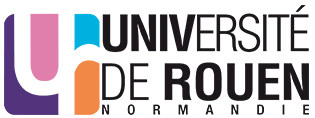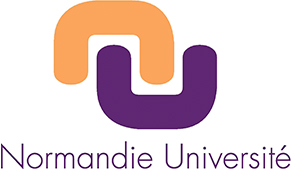Call for papers « The political economy and labour relations of Sport Mega-Events »
Call for papers for Special Issue of Economic and Labour Relations Review (Dec. 2023)
Guest Editors: Terri Mylett, Carlos Rabasso, Javier Rabasso and George Lafferty
This special issue is timed for publication after the 2020 Summer Olympics (held in Tokyo, 2021), the 2022 FIFA Men’s World Cup (Qatar) and the 2023 FIFA Women’s World Cup (Australia and New Zealand), during the lead-up to the 2024 Summer Olympics (Paris). It engages with the political economy and labour relations of mega-events, complementing previous interdisciplinary research (e.g. Roche 2000; Wenner and Billings 2017) to explore how these events constitute focal points at which global, national and local forces intersect, generating distinctive patterns of political-economic inclusion and exclusion.
As sites of massive capital expenditure and accumulation, mega-events attract major corporations, international sports federations, media organisations, politicians and property developers; yet often to the exclusion of less powerful bodies, such as local communities and environmental action groups. Nations and cities compete to host mega-events which also frequently attract opposition around issues such as environmental impacts, public finance, community disruption and human rights. Mega-events have the capacity to reconfigure power relations between national and sub-national governments; for example, city-based Olympics can have very different outcomes from nation-based World Cups. Mega-events can also galvanise action on employment issues; for example, the 2019 Women’s FIFA World Cup (France) brought collective attention to the extraordinary unequal pay by sex for national sporting teams.
The legacies of sport mega-events are often highly contentious, with critics highlighting such problems as disruption to host communities, budget overruns and corruption (Horne 2015; Kennedy and Watt 2012; Scheu, Preuβ and Könecke 2021; Toohey 2019). Therefore, this special issue raises such questions as: Is there evidence that hosting a mega-event pushes countries to embrace international standards for workers’ rights and human rights? Does hosting a mega-event help raise living standards or reduce public financial capacity to address pressing social needs? Do mega-events leave behind infrastructure that facilitates productivity growth or merely ‘white elephants’ and diminished social housing (Nobre 2017; Rowe 2011)?
Indicative topics that papers may address include
- Sportpersons’ (and other workers’) voice, unionisation, health and safety;
- Transnational global justice and human rights/labour standards (e.g. modern slavery);
- Historical political-economic legacies of mega-events (e.g. social housing);
- Relationships between governments and global sports associations (e.g. IOC, FIFA).
- Commodification of sport;
- The economic and employment risks and opportunities for First Nations’ peoples;
- Gender equity (e.g. equal pay);
- Impacts on public policy;
- Infrastructure and urban development/dislocation;
- Sport mega-events as sites for protest and resistance.
We hope that researchers from many different countries will consider contributing to this special edition. The journal is English-language but authors beyond the Anglosphere are encouraged to contribute, consistent with The ELRR’s commitment to internationalism and the global concerns of this topic. This call for papers is being distributed in English, French and Spanish versions. The special issue is also open with respect to theory and methodology, while being mindful that submissions should be accessible to a reasonably wide audience.
References
- Horne, J (2015) ‘Assessing the sociology of sport: On sports mega-events and capitalist modernity’, International Review for the Sociology of Sport, vol. 50 (4-5): 466 – 471.
- Kennedy, J & Watt, P (2012) ‘Seeing Olympic effects through the eyes of marginally housed youth: changing places and the gentrification of East London’, Visual Studies 27(2): 151-160.
- Nobre, E A C (2017) ‘The 2014 FIFA World Cup in Brazil: Hosting a Sport Mega-event in a BRIC Context’ in Nobre, E A C (editor), Sports Mega-events and Urban Legacies: the 2014 FIF World Cup, Brazil, Palgrave Macmillan, Mega-Event Planning series.
- Roche, M (2000) Mega-events and Modernity: Olympics and Expos in the Growth of Global Culture, Routledge, London.
- Rowe, D (2011) Global Media Sport Flows, Forms and Futures, London and New York: Bloomsbury Academic.
- Scheu, A, Preuβ, H and Könecke (2021) ‘The legacy of the Olympic games: A review’, Journal of Global Sport Management, vol. 6, no. 3, pp.212 – 233.
- Toohey, K (2019) ‘Who owns sport at sport mega-events?’ in Adams, A and Robinson, L (eds.), Who Owns Sport?Routledge: London and New York: 84 – 101.
- Wenner, L A and Billings, A C (eds.) (2017) Sport, Media and Mega-Events, London and New York: Routledge.
Submission Process and Timelines
Review The ELRR’s scope. The scope statement can be found under ‘About the journal’ at: https://journals.sagepub.com/home/elr
Please contact the editors with expressions of interest to discuss potential paper fit within the special edition:
- t.mylett@westernsydney.edu.au
- carlos.rabasso@neoma-bs.fr
- xrabasso59@gmail.com
- g.lafferty@westernsydney.edu.au
Authors must participate in a symposium (in person or electronically synchronous) for papers to be included in the special edition.
Submission of articles must be via Manuscript Central: https://mc.manuscriptcentral.com/elrr
Submissions that conform to the house style will be prioritised for peer review and editing. The journal’s formatting requirements can be found at: https://au.sagepub.com/en-gb/oce/journal/economic-and-labour-relations-review#submission-guidelines
- Expressions of interest to editors: open until 31 March 2022.
- Abstracts and symposium drafts: due 31 July 2022.
- Symposium: 30 September 2022.
- Articles for peer reviewing: 28 February 2023.
- Publication: December 2023.
The guest editors
Terri Mylett is a Lecturer in the School of Business, Western Sydney University, with research interests in work health and safety and labour market segmentation.
George Lafferty is Professor, Employment Relations, in the School of Business, Western Sydney University, with research interests in social and political theory, service sector employment, industrial relations and the role of unions.
Carlos and Javier Rabasso have researched cross-cultural thinking and corporate responsibility from a critical thinking perspective for more than 15 years, with a particular focus on cultural diversity and management education. Sport management has been part of their purview. Their latest book is Critical Thinking in Global Environments (From Cross-Cultural Management to Corporate Social Responsibility: Diversity, Education, Technology and Consumption), Publications Electronique de I’ERIAC (Equipe de Recherche Interdisciplinaire sur les Aires Culturelles, Rouen, 2021.





